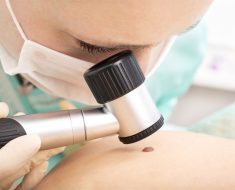(HealthDay)—First-trimester glycated hemoglobin (HbA1c) may aid in early identification of women at risk for gestational diabetes mellitus (GDM), according to a study published online Aug. 16 in Scientific Reports.
Stefanie N. Hinkle, Ph.D., from the National Institutes of Health in Bethesda, Md., and colleagues assessed the prospective association between first-trimester HbA1c and GDM as well as the utility of HbA1c for prediction of GDM. Women participating in the Fetal Growth Studies-Singleton Cohort (2009 to 2013) were included. In 107 GDM cases and 214 matched controls, HbA1c was measured at 8 to 13, 16 to 22, 24 to 29, and 34 to 37 gestational weeks. Women with HbA1c ≥6.5 percent at enrollment (three women) or who had a hemoglobin variant (six women) were excluded.
The researchers found that women who later developed GDM had significantly higher HbA1c at 8 to 13 gestational weeks than women without GDM (5.3 versus 5.1 percent). This difference in HbA1c remained significant throughout pregnancy. At 8 to 13 weeks, each 0.1 percent increase in HbA1c was associated with an adjusted 22 percent increased GDM risk. Compared to conventional risk factors, first-trimester HbA1c significantly improved GDM prediction (area under the curve, 0.59 versus 0.65).
Source: Read Full Article





